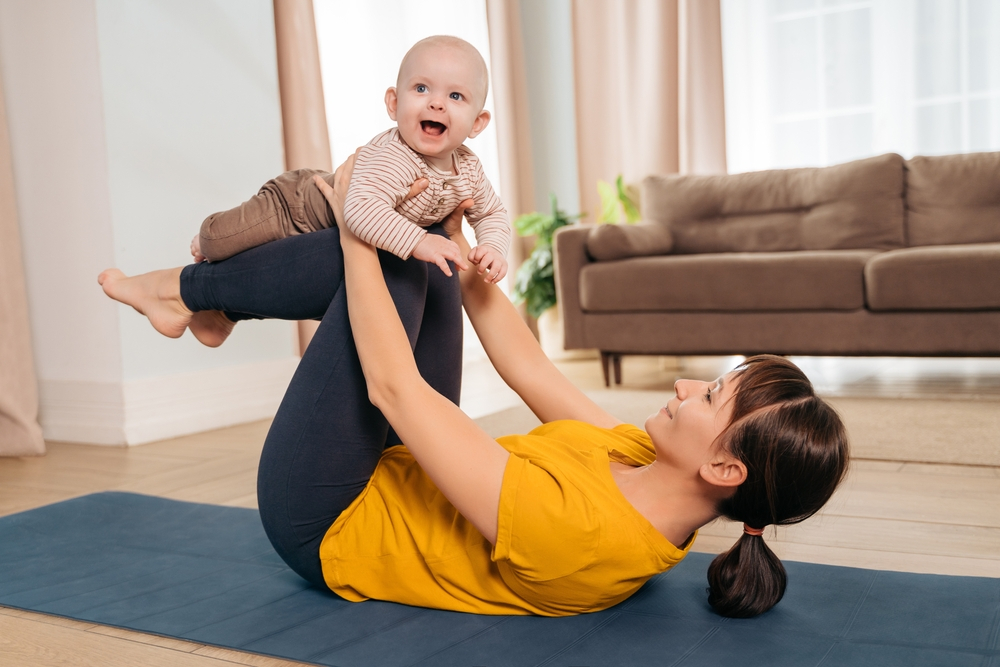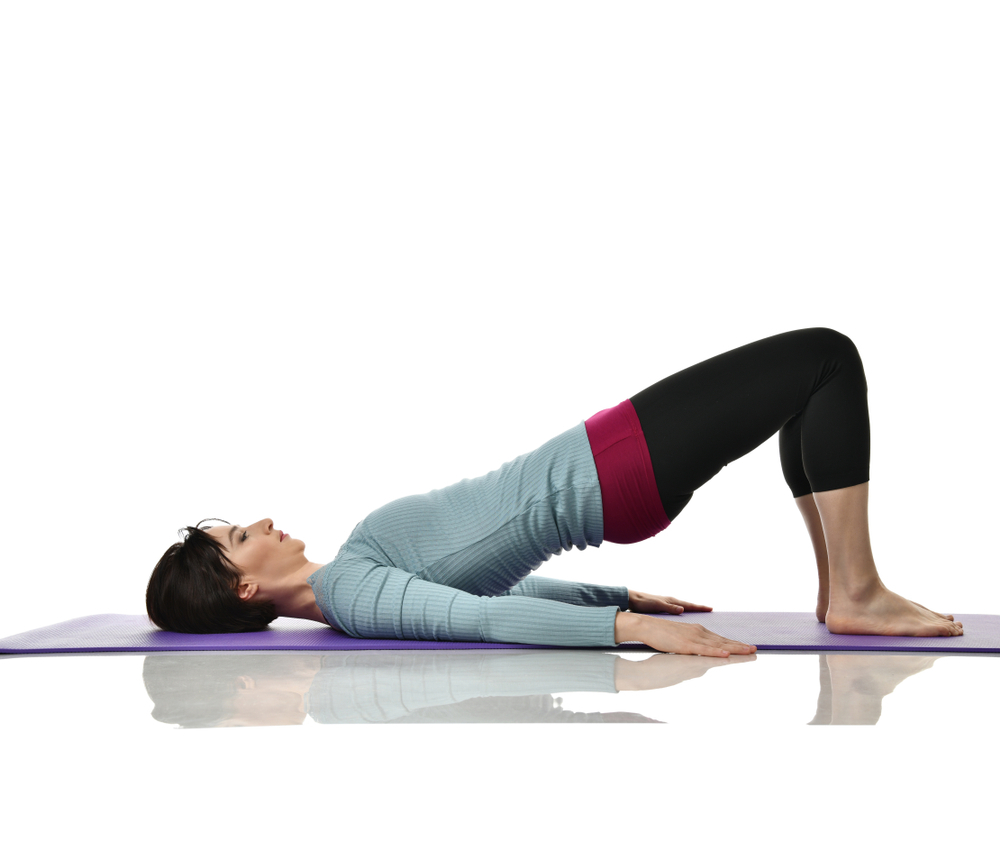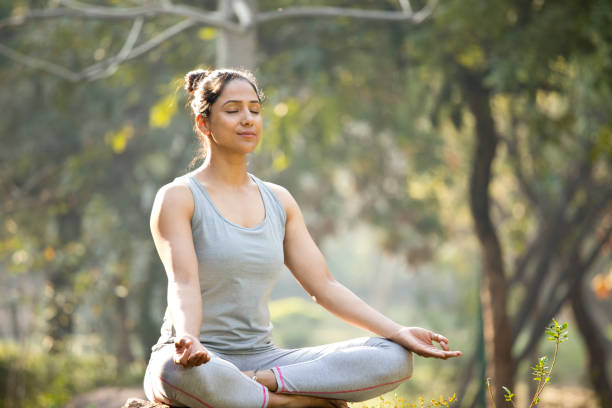- Home
- Blogs
- Post Pregnancy
- 6 reasons to include Postnatal Yoga in your routine
- 6 reasons to...
6 reasons to include Postnatal Yoga in your routine

Whether you’re a first-time mom or had your fifth baby, newborns can leave you feeling drained and frazzled. From fluctuating hormones to new sleep cycles, it can be a struggle to negotiate your new identity as a parent. Yoga after delivery is one effective way to step out of postpartum depression and rediscover yourself while getting back in shape. And the best part: all you need is a yoga mat and some comfy clothes to get started!
Tip: Maximize the benefits of postnatal yoga practice with an AI-enabled Yoga mat for real-time guidance
What is postnatal yoga?
The “me” factor usually takes a backseat for moms after delivery, which can be detrimental to their mental and physical health and their babies.
Postpartum Yoga workout is all about understanding and accepting your body after delivery and calming your mind. Especially for new moms, the journey can be daunting and depressing. Yoga after delivery- cesarean or normal allows you to breathe, balance, and get in tune with yourself as you continue to adjust to a new life with a little one at home.

The right time to start Yoga after Delivery
Different bodies have different rejuvenating capacities. While some new moms might feel ready to resume workouts just a few days after giving birth, the same is not true for everyone. You may feel up to the task after an uncomplicated normal delivery. But what about moms who have had a cesarean delivery after a difficult pregnancy? Doctors usually recommend a new mother wait for at least six weeks before getting into any kind of postnatal exercise regimen. Based on different circumstances, your individual timelines to resume workouts may differ, so be sure to have a word with your doctor before continuing any form of intense physical activity. Post-pregnancy yoga poses can be modified to meet the needs of most people.
It’s essential to speak with your doctor or instructor about any current or previous physical issues - like postpartum back pain, to learn possible modifications and not worsen the situation further. Also, do not jump directly into asanas. Be gentle with your body and start with a safe, gentle postpartum workout that includes breathing exercises and meditation, then gradually shift to asanas.

6 core benefits of postnatal yoga
Yoga is much more than physical exertion for a fit body or a flat tummy, it can be a lifestyle choice. Many Yoga proponents believe that daily practice can considerably reduce stress, make their bodies stronger and create an overall sense of wellbeing.
1. Guards against postnatal depression
The post-delivery period induces mental and physical changes in women causing new moms to experience a range of mild to severe disorders, postpartum depression is one. It can be thought of as an interplay of sadness, anhedonia, irritability, anger, and reduced self-esteem. According to medical studies, one out of four women in the world suffers from postpartum depression. Post-delivery yoga can increase serum levels of serotonin, dopamine, and the release of endorphins, which can improve postpartum depression. Deep breathing exercises can calm the mind and boost self-confidence. The Kapalbhati pranayam and Savasana can be effective in overcoming dreariness and depressed moods.
2. Strengthens the body
The endless feedings and sleepless nights can cause women to feel tired in the weeks after birth. Exhaustion coupled with a lack of energy can prevent you from concentrating on your child and your family. Getting plenty of rest and eating a balanced diet can help along with Postpartum yoga practice. Shorter holds and fewer repetitions of core-strengthening post-delivery yoga poses like Tiger pose( Vyaghrasana) and balancing table pose (Dandayamna Bharmanasana) can help you build your arm and shoulder strength. This is something you would come to appreciate as your baby grows.
3. Strengthens the pelvic floor
If you’re dealing with incontinence issues, you’re not alone! Up to 30% of new moms experience this. Certain yoga poses like Root Lock (Mula Bandha), Knee to chest pose (Apanasana), Cow pose (Bitilasana), Garland pose (Malasana), and deep breathing can help tone the pelvic floor muscles and improve bladder control and urine flow. Moms can even pursue postnatal pelvic floor exercises as an alternative to traditional physical therapy exercises.
4. Helps with milk production
New motherhood calls for plenty of nourishment for both the mother and her child. Breast milk is the child’s immediate need and to provide this to her baby, mothers need to be in good health both mentally and physically. Various medical studies have hinted at better milk production in women who regularly practice yoga after delivery. The idea is that postnatal yoga can help relax the mother allowing for an improved release of Prolactin and Oxytocin, which are essential for milk production. Certain poses like Tree pose (Tadasana), Gracious pose(Bhadrasana), and Bridge pose(Setu Bandhasana) can prove beneficial for breastfeeding mothers.
5. Restores hormonal balance
Your hormones will typically stabilize within the first couple of weeks after delivery, but if estrogen levels continue to stay high in relation to progesterone, you’ll experience estrogen dominance symptoms, such as mood swings, insomnia, irritability, depression, brain fog, fatigue, headaches, water retention and bloating. Postpartum Yoga poses can help ease the pressure on the nervous system while balancing your hormones and helping you uplift your mood. Better blood flow in your body also helps strike a better balance between estrogen and progesterone.
6. Reduces post-pregnancy weight
If you're like most new moms, you're eager to put away your maternity clothes and slip into your old jeans. Belly fat loss has come to be associated with self-confidence in new moms. But the problem is it won’t go away on its own. With the proper diet management combined with postpartum yoga, however, you can get fantastic results in tummy tightening. And the best part is you can do it at home without any expensive paraphernalia. Poses like Mountain pose(Trikonasana), cow face pose (Gomukhasana), and Cat pose (Marjaryasana) can help you get back to normalcy and shed the baby fat easily. Now that you know the benefits of postpartum yoga, why not make it a part of your regime? But, you ought to understand your body requirements before you start. Expert guidance can be of paramount importance here
Experience active motherhood with post-pregnancy programs
Complicated deliveries or not, every mother has a unique requirement from diet to massages to simple know-how about handling a baby. This is where expert guidance in post-pregnancy programs comes in. Post-pregnancy plans by Newmi are comprehensive guidance tools offering a variety of solutions to the dilemmas that new mothers face.
1. Infant and maternal massage at home
This plan derives its inspiration from ancient Indian traditions. A nurturing massage is carried out in the presence of an expert which allows speedy recovery of the mother and healthy development of the baby.
Features:
- 45 minutes to 1 hour daily massage of the mother and the baby
- Safe massaging oils and cotton cloth for tummy tying
- Seamless support via chat
Benefits:
- Eases sore spots and muscle tension
- Enhances blood and oxygen flow to the muscles
- Tones abdominal area and
- Opens stuck tissues
2. Breastfeeding education
With this module, you can start feeding your baby the right way and overcome all latching issues that new mothers face.
Features:
- A holistic understanding of breastfeeding
- Benefits of breast milk, diet plans for boosting breast milk
- Techniques for latching
- A lactation specialist will guide you about essential herbs and food recipes
Benefits:
- Healthy baby feeding
- A proper diet rejuvenates both mother and baby
- Continuous support by our team
3. Comprehensive diet plans
If you are breastfeeding, the food you eat helps your baby grow strong and healthy too. But what to eat and avoid? Our diet and weight management plan curated by experts can help.
Features:
- Knowledge about different pregnancy nutritional foods
- Right quantity intake of foods in your diet
- A nutritional expert would be assigned
- Personalized food and lifestyle plan
Benefits:
- Quick recovery of mothers
- Healthy baby growth
- Helps in weight management
4. Postpartum recovery management
Mothers who feel a loss of strength and control in abdominal muscles, diastasis recti, leaking urine, constant back pain, and painful intercourse, can opt for this special recovery program.
Features:
- Designed by world-class pelvic experts
- 12-week self-led program
- Do it yourself at home
- Efficient breathing practices and movements to strengthen the pelvic floor
- Daily drills to measure tummy gap and overcome it
- Micro habits for bladder, bowel, and sexual health
- PreggBuddy to support, motivate and keep you going
Benefits:
- No sweat transformation
- Proven results in bladder, bowel, and sexual health
- Progress with core strengthening
- Constant support via counseling and talk therapy with family members
5. Postnatal yoga
This module covers both the mental and physical health of new mothers. Focused on recovery and restoration, it helps to fight postpartum depression as well.
Features:
- Dance movement therapy sessions
- Complimentary diet and nutrition
- Sessions on lactation
- Access to our Live Mom’s chat group
Benefits:
- Engagement of mind and spirit along with the body
- Rebuilds stamina
- Reduces stress
- Reduced muscle tension
- Boosts confidence
Wrap up
Motherhood is a very unique experience and a daunting one too. You must listen to your body while practicing postpartum yoga. As the weeks roll on, we’re sure you’d feel more confident in your body both mentally and physically recharged. Take care of yourself with postpartum yoga practices and diets, to be able to take care of your babies better.
Leave a Comment
Blogs
Popular Posts
Get the latest from Newmi
Subscribe to get Email Updates!
Thanks for subscribe.
Your response has been recorded.
COPYRIGHT © 2025 KA HEALTHCARE PVT LTD - ALL RIGHTS RESERVED.
Disclaimer: NEWMI CARE does not cater to any medical/Pregnancy or psychiatric emergencies. If you are in a life-threatening situation, please do NOT use this site. If you are feeling suicidal, we recommend you call a suicide prevention helpline or go to your nearest hospital.


0 Comment